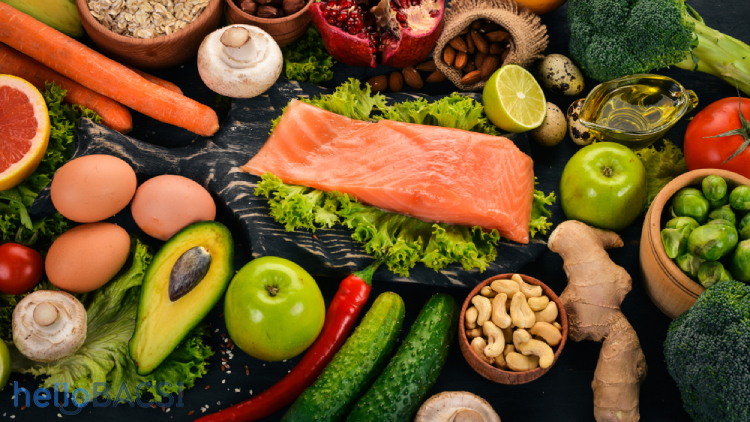Although there are no specific dietary recommendations for amoebic brain abscess, reputable health organizations emphasize the importance of proper nutrition in supporting the immune system and overall health. This is particularly crucial for individuals with infections such as amoebic brain abscess.
1. The Importance of Diet for Individuals with Amoebic Brain Abscess
A brain abscess caused by Entamoeba histolytica commonly presents with symptoms such as headaches, vomiting, and altered mental status.
Signs of amoebic brain abscess most frequently include meningeal symptoms, facial nerve (VII) palsy, motor paralysis, and seizures. Most patients exhibit abnormal cerebrospinal fluid (CSF), though there are no specific or distinctive abnormalities. Diagnosis is confirmed through serology and PCR testing of brain abscess aspirate or CSF, with treatment involving metronidazole.
Amoebic brain abscess is a serious but treatable infection if diagnosed and managed early. However, treatment can be challenging and may leave lasting complications, especially in advanced cases. Therefore, it is critical to seek immediate medical attention if you or a loved one experiences symptoms such as severe headaches, visual disturbances, fever, vomiting, nausea, or neck stiffness.
Diet plays a vital role in supporting treatment and recovery for individuals with amoebic brain abscess. While it cannot replace medication, a healthy diet can help strengthen the immune system, reduce inflammation, and improve overall health.
2. Nutritional Guidelines for Individuals with Amoebic Brain Abscess
Based on general dietary recommendations from the World Health Organization (WHO) and other reputable health institutions, here are some nutritional principles for individuals with amoebic brain abscess:
Adequate and Balanced Nutrition
-
Energy: Ensure sufficient caloric intake to meet the body’s demands, especially during recovery.
-
Protein: Increase protein intake to support tissue repair and immune function. Good sources include lean meat, fish, eggs, beans, and nuts.
-
Vitamins and Minerals: Consume a variety of fruits, vegetables, and whole grains to obtain essential nutrients. Pay special attention to immune-supporting nutrients such as vitamin C, vitamin D, zinc, and selenium.
Immune System Support
-
Eat antioxidant-rich foods to reduce inflammation and protect cells.
-
Consider probiotics to support gut health, as a significant portion of the immune system resides in the gut.
-
Increase intake of vitamins and minerals through leafy greens, fresh fruits, and nuts.
-
Consume foods rich in antioxidants to reduce brain inflammation and protect neural cells.
Ensuring Sufficient Energy and Protein
-
Patients often experience weakness, so provide adequate energy from sources like rice, bread, and potatoes.
-
Protein is essential for brain cell recovery and immune function. Prioritize lean protein sources such as chicken, fish, and tofu.
Brain Function Support
-
Include omega-3 fatty acids from foods like salmon, mackerel, flaxseeds, and walnuts to promote brain health.
-
Stay well-hydrated to maintain optimal brain function.
Food Safety and Hygiene
-
Ensure food safety and proper hygiene.
-
Wash hands thoroughly before eating and after using the restroom.
-
Rinse fruits and vegetables well, and cook food thoroughly, especially meat and seafood. Avoid raw or undercooked foods.
-
Drink boiled or bottled water to ensure safety.

Foods to Avoid
-
Limit processed foods, fast food, sweets, and carbonated drinks, as they can promote inflammation and weaken immunity.
-
Reduce intake of greasy, fried foods.
-
Avoid high-risk foods such as raw or undercooked items that may harbor bacteria.
Conclusion
Diet is only one aspect of treating amoebic brain abscess. It is advisable to consult a doctor or nutritionist for personalized advice based on individual health conditions and nutritional needs.
The most crucial factor is adhering to the doctor’s treatment plan. Additionally, adequate rest and stress management are essential for recovery.

